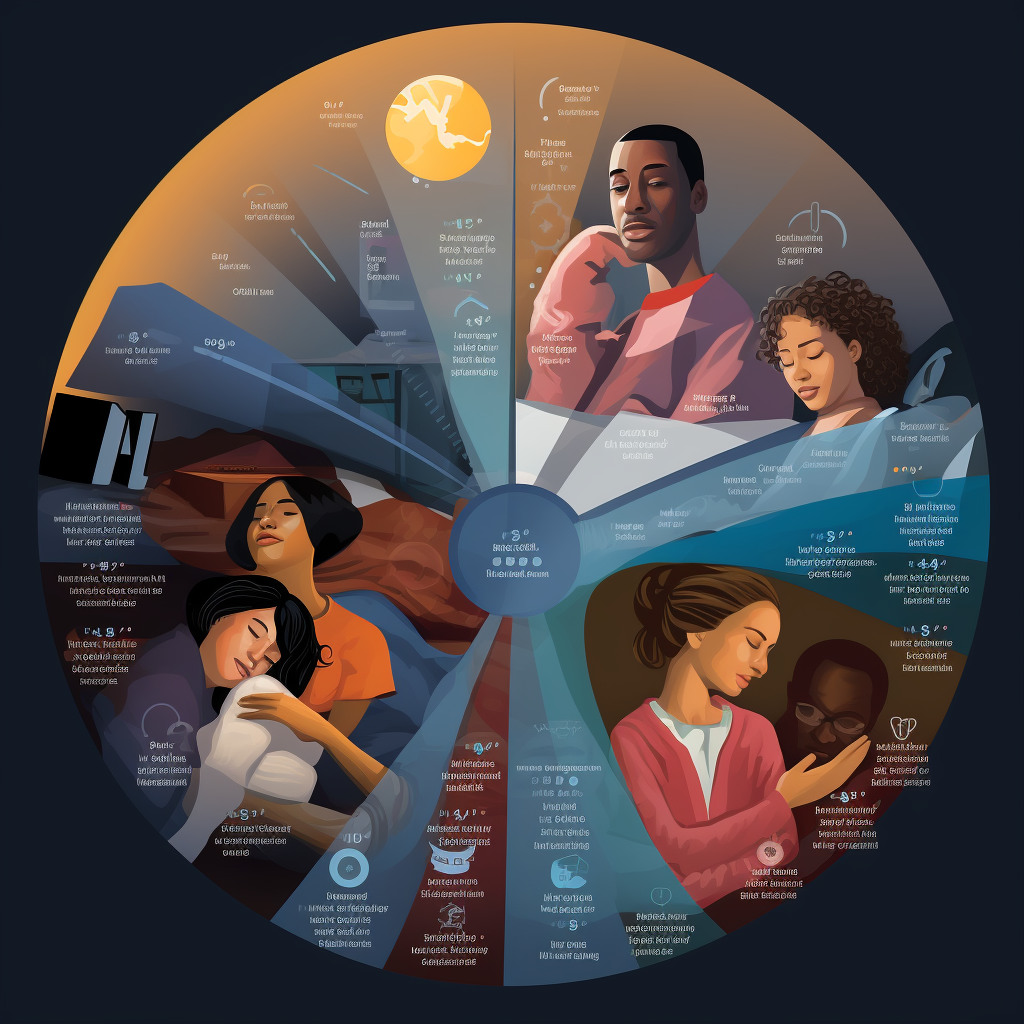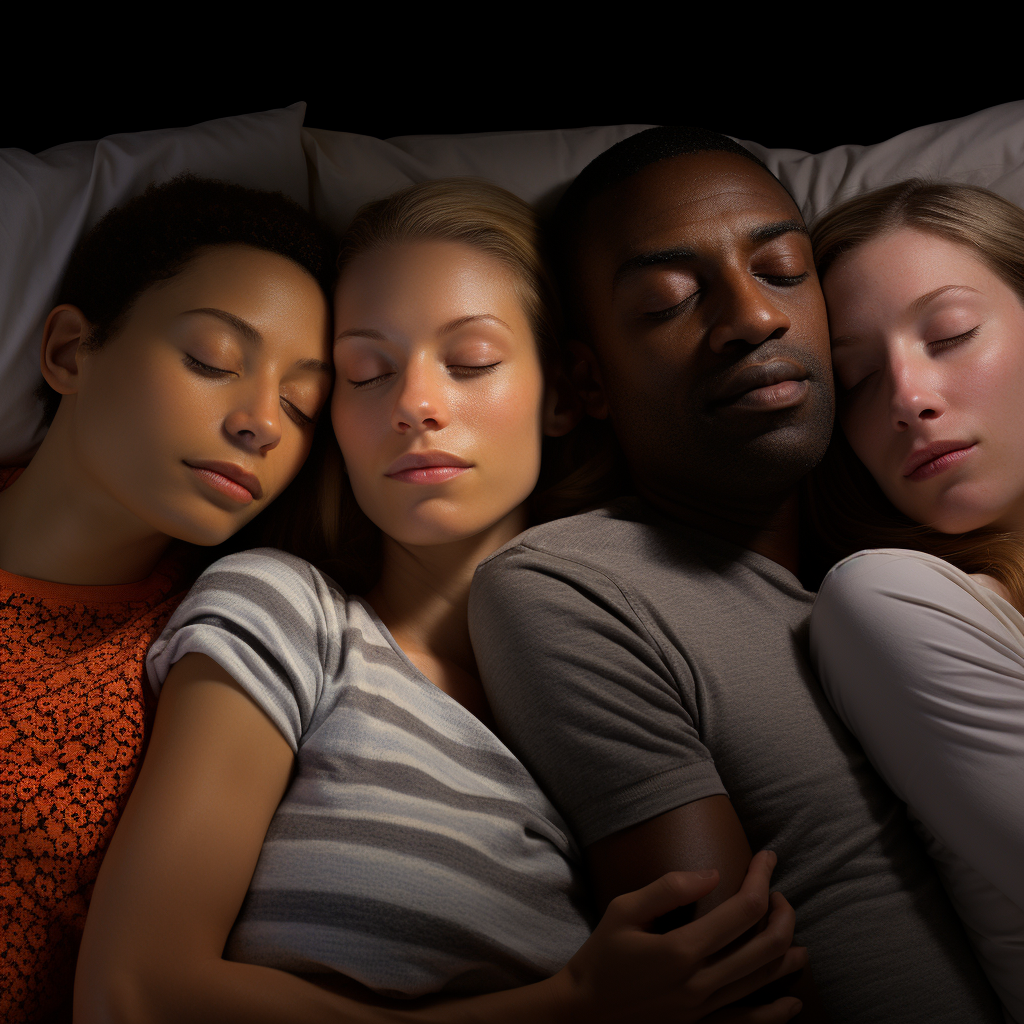Uncovering sleep patterns, disparities, and cultural influences among ethnic groups. Learn strategies to improve sleep health for diverse populations.
Ethnicity and Sleep: Unveiling Patterns, Disparities, and Cultural Influences on Sleep
Sleep is a universal physiological need, yet it is influenced by a myriad of factors, including ethnicity and cultural practices. Research has shown that different ethnic groups may exhibit unique sleep patterns, disparities in sleep duration, and variations in the prevalence of sleep disorders. Understanding these intricacies can help individuals from diverse ethnic backgrounds optimize their sleep health and well-being.
Sleep Patterns Across Ethnic Groups
Studies have uncovered intriguing differences in sleep patterns among various ethnic groups. For example, some research indicates that individuals of Asian descent tend to have shorter sleep durations compared to Caucasian counterparts. Additionally, certain ethnic groups may have different preferences for sleep timing and nap habits. These variations highlight the importance of acknowledging and respecting the diversity of sleep patterns across different ethnic backgrounds.
Disparities in Sleep Duration
Ethnicity can also play a role in sleep duration disparities. Factors such as socioeconomic status, cultural norms, and work-related demands can impact the amount of sleep obtained within different ethnic groups. For instance, some studies suggest that individuals from Hispanic or African American backgrounds may experience shorter sleep durations compared to individuals from other ethnic backgrounds. Recognizing these disparities can inform efforts to promote equitable sleep opportunities for all ethnic groups.
Prevalence of Sleep Disorders
The prevalence of sleep disorders can vary among different ethnicities, shedding light on the interplay between ethnicity and sleep health. Certain sleep disorders, such as sleep apnea or insomnia, may be more prevalent in specific ethnic groups due to genetic or physiological factors. Additionally, cultural influences, including dietary habits, bedtime routines, and stress levels, can contribute to the development and manifestation of sleep disorders within ethnic communities. By understanding these disparities, tailored approaches to diagnosis, treatment, and education can be implemented to address the unique needs of each ethnic group.
Cultural Influences on Sleep Practices
Culture exerts a profound influence on sleep practices, encompassing bedtime routines, sleep environment, and attitudes towards sleep. Cultural beliefs and traditions related to sleep may differ significantly among ethnic groups, impacting sleep quality and behaviors. For instance, cultural practices surrounding meal times, social activities, or exposure to artificial light can affect sleep-wake schedules and overall sleep health. Recognizing and respecting these cultural influences is crucial in developing culturally sensitive sleep interventions and promoting healthy sleep practices for individuals from diverse ethnic backgrounds.
Enhancing Sleep Health for All Ethnicities
To optimize sleep health across diverse ethnic groups, it is important to consider the unique characteristics and needs of each population. Here are some recommendations to promote better sleep health:
- Cultivate awareness and respect for diverse sleep patterns and cultural sleep practices.
- Maintain consistent sleep schedules and prioritize sufficient sleep duration.
- Create a sleep-friendly environment that aligns with cultural preferences and values.
- Address socioeconomic factors that may contribute to sleep disparities, advocating for equitable access to sleep resources and education.
- Encourage open dialogue and culturally sensitive approaches in the diagnosis and treatment of sleep disorders.
- Promote community-based initiatives and educational programs to raise awareness of sleep health within different ethnic communities.
By embracing the richness of ethnic diversity and understanding the cultural influences on sleep, individuals and communities can foster healthier sleep practices and improve overall well-being for all ethnicities.





